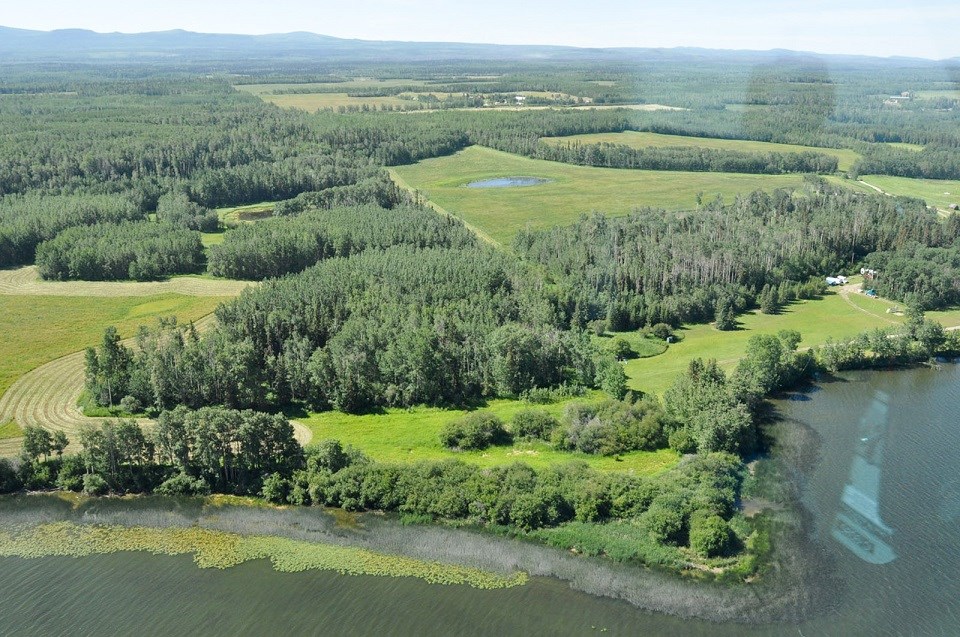The development of year-round mental health and addictions treatment centre serving multiple B.C. First Nations in the north has been stalled.
Carrier Sekani Family Services (CSFS) has been planning for an essential Indigenous Healing Facility serving people requiring treatment for addictions and mental health in the northern interior region, a dream built on decades of work.
CSFS says the project has been hindered by a decision made by the Agricultural Land Commission (ALC) North Panel that effectively denies a non-farm use on the site.
The location for the facility, which is currently Tachick Lake Resort southwest of Vanderhoof, was identified as an optimal site.
Tachick Lake Resort has been used as a commercial lodge and campground since the 1960s and CSFS says this location was chosen after years of due diligence and feasibility studies to identify potential sites for a health and treatment centre.
The facility will serve local Indigenous people from a medically-based service delivery model that is grounded in Carrier Sekani healing and land-based wellness practice.
Due to a current lack of local health and wellness services, members often have to leave for Vancouver Island or the Lower Mainland to receive treatment.
“The services to be offered in this facility will work to begin to address some of the alarming rates of harm being endured by Indigenous people in our home communities. The data is clear – Indigenous people are being affected by the opioid crisis at a higher rate, with recent statistics showing that First Nations are dying from overdose at a rate of more than 5 times higher than other BC residents” says CSFS Board President, and Chief of the Cheslatta Carrier Nation, Corrina Leween in a news release today (March 17).
“Carrier Sekani Family Services has waited more than 25 years for the full support needed to develop a quality treatment and healing facility - no further delay should be endured.”
Tachick Lake Resort addresses the needs of the facility, including its size, a natural setting near water for the land-based healing model, location near Saik’uz First Nation and situated near enough to major centres, like Vanderhoof and Prince George, to attract and retain professional medical staff and allow proximity to continued support.
“Part of our treatment model includes agriculture activities, whereby patients will learn gardening through building and maintaining a community garden, and a traditional food processing unit” states CSFS CEO Warner Adam.
“Local elders will be brought in to assist in therapeutic counselling during food security activities to compliment the medically-based treatment model.”
CSFS says the ongoing opioid crisis and a lack of support services for people in the northern interior, particularly rural and remote communities, has added an urgency to the current planning process, claiming the delay impairs the health and wellness of Indigenous people in the region.
The project has now been stopped in its tracks by the ALC's decision, which rejected an application to allow the construction of a new building on the site, which CSFS explains is land that currently hosts a commercial resort not and used for farming.
“CSFS is very disappointed in the decision of the ALC. An exemption that allows for the provision of essential health care for First Nations in a manner that respects First Nations cultures and land-based healing practices is appropriate.”
CSFS says it will seek a reconsideration of the decision by the ALC and call on all levels of government to come up with ways to make this project happen.
It has entered into discussions with the province about partnership for the project, which includes an initial dedication of $5.7 million in funding provided by the First Nations Health Authority.
However, the initial funding does not meet the total project costs which are estimated at $16 million.
Talks are underway between CSFS, provincial and federal officials including the First Nations Health Authority around the funding shortfall.
“Dedicated financial and political support is critical for this essential Centre to proceed,” says CSFS.
“CSFS looks forward to working in collaboration to achieve long-term goals of addressing the ongoing opioid and mental health crises that are disproportionately affecting our communities, and improving Indigenous health in British Columbia.”





